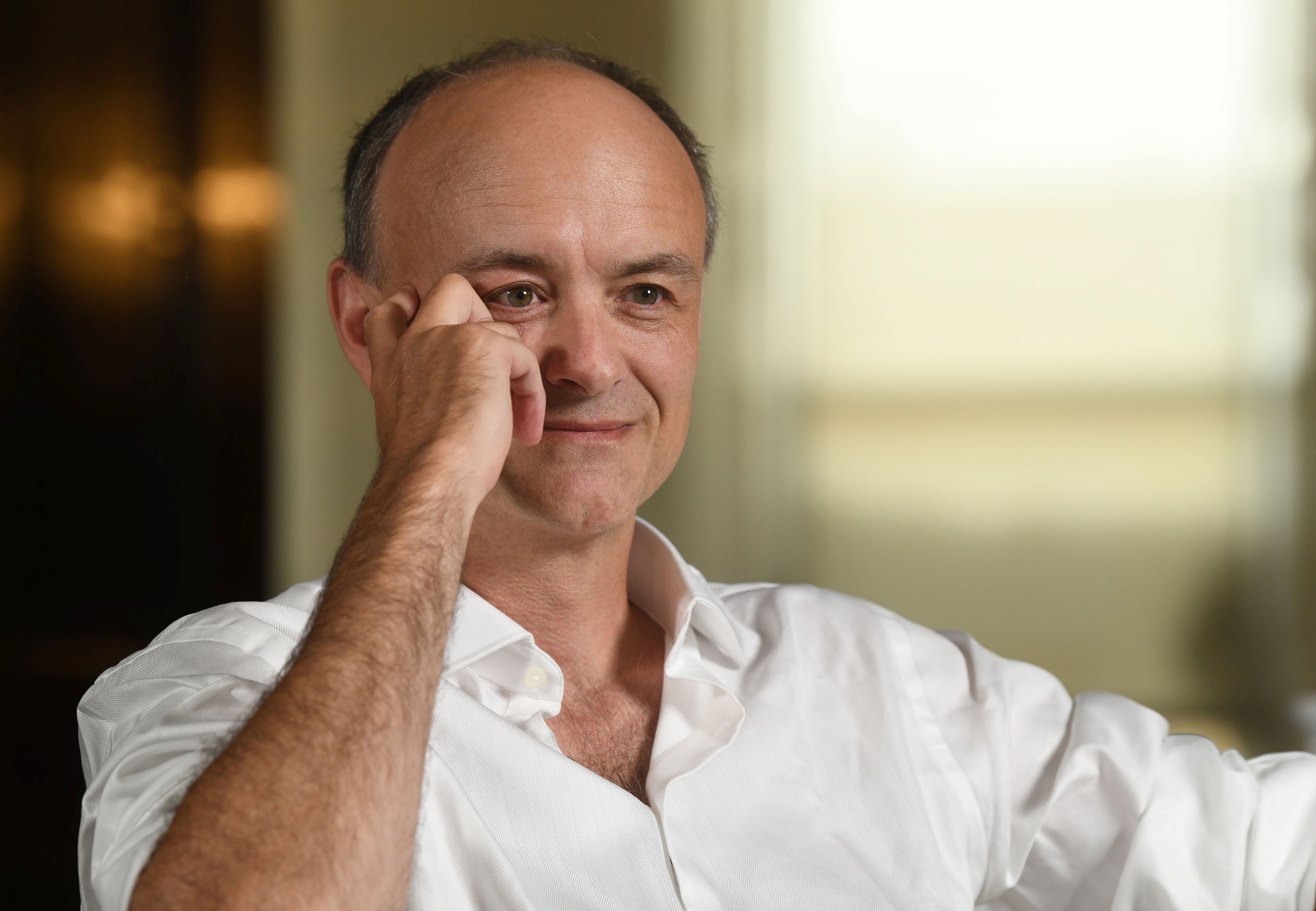Dominic Cummings just wants to be understood – like every other powerful man sidelined in politics
The former special advisers’s newfound love of self-promotion is amusing because it shows that he is not unique, much as he clearly wants to be, writes Marie Le Conte


Allow me, if you will, to start this column by proposing a toast. I am writing this at 11am, so my mug of coffee will have to do, but I would like to raise a glass to the humble Baron Llewellyn of Steep, peer of the realm and Her Majesty’s ambassador to France.
An alumnus of both Eton and Oxford, his background is not what sets him apart from his political contemporaries. Instead, what makes Llewllyn special is that he knows to shut the hell up. He was chief of staff to David Cameron – first as leader of the opposition, then as prime minister – for over a decade, yet we never hear from him. It is bliss.
The same cannot be said of Dominic Cummings, regrettably. Boris Johnson’s senior adviser in No 10 was shadowy, mysterious and silent, and then he wasn’t; somehow, it has become nearly impossible to go about your day without stumbling upon at least one tweet of his. Dominic Cummings now tweets like his life depends on it. He has a Substack newsletter, which he encourages people to pay for with the zeal of a journalist recently made redundant.
To slightly misquote that famous phrase which was not uttered by Kafka, Twain or Lincoln but nevertheless remains popular: “Better to remain silent and be thought obnoxious and malevolent than to speak and to remove all doubt.”
Cummings’s newfound love of self-promotion is amusing because it shows that he is not unique, much as he clearly wants to be. Though he never seemed especially fond of the spotlight, a post-Downing Street Nick Timothy still found it in himself to write a weekly column for The Telegraph and tweet every day.
Cameron’s own Steve Hilton, meanwhile, can be safely set aside as his desperate thirst for attention seemed obvious from day one. Then there are Alastair Campbell and Peter Mandelson, both of whom wrote memoirs and still manage to pop up in the press every other week. Neither has been anywhere near No 10 in over ten years, but that does not matter.
In a way, it is quite sweet; all these men spent so long operating in the shadows, yet it seems that all they yearned for was the spotlight. It often ends up becoming self-defeating; Cummings sat down for a lengthy interview with Laura Kuenssberg last week, and the consensus was that it was not a good idea.
Still, it feels worth wondering whether there is a more systemic issue at play here. Men who have wielded immense influence in government clearly tend to have large egos, but they are obviously longing for more than mere attention. In politics as in love, the only thing any of us ever really want is to be understood.
Why else would Cummings be writing thousands and thousands of words on his time in Downing Street? Why has he tweeted six times since I started writing this column, when he could be doing virtually anything else? Why did all of these men leave the corridors of power, only to then haunt them like ghosts?
We often talk about what being in the public eye does to politicians, but at least they get a chance to respond. Special advisers are written about in the press just as much – if not more, if they are especially senior – and during those years or months they must remain silent.
They can anonymously brief friendly reporters but that often results in muddying the waters further. Political journalism is about access, rumours and competing narratives, and if you cannot go on the record, others will shape your character for you. Because Westminster is often more concerned with personas than policies, this also means that these men will be relentlessly analysed, built up as geniuses – then destroyed once the wind turns.
Like a play with an interchangeable cast, British politics is always in need of someone hiding in the background and (maybe, just maybe) running the country more than the prime minister themselves. It is a person who will become the talk of the town, to the extent that they stop being entirely human; instead, they are a piece of performance art, created by the whole of Westminster.
If that were you, wouldn’t you be gagging to try and set the record straight after the event? It is both easy and fun to mock the compulsive limelight hogging of some of these men, but there may be a lesson to be learnt here. It takes a village to raise a child, and a bubble to build up a character so ludicrous it becomes inescapable – even for the people playing them.
To find out what others are saying and join the conversation scroll down for the comments section or click here for our most commented on articles






Join our commenting forum
Join thought-provoking conversations, follow other Independent readers and see their replies
Comments